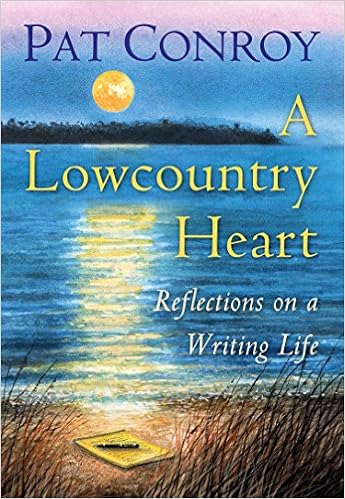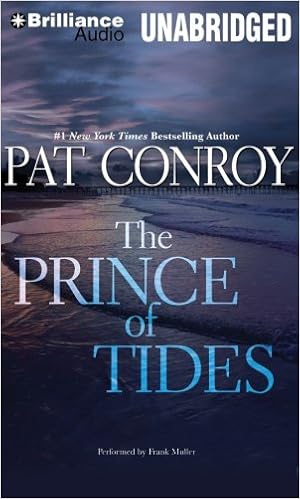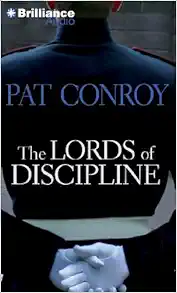
Description
“Reading Pat Conroy is like watching Michelangelo paint the Sistine Chapel.” — Houston Chronicle “Astonishing . . . stunning . . . the range of passions and subjects that brings life to every page is almost endless.” — The Washington Post Book World “Blockbuster writing at its best.” – Los Angeles Times Book Review “Pat Conroy’s writing contains a virtue now rare in most contemporary fiction: passion.” – The Denver Post “Magnificent . . . Beach Music is clearly Conroy’s best.” – San Francisco Chronicle PAT CONROY, America's preeminent storyteller, delivers a sweeping novel of lyric intensity and searing truth-the story of Jack McCall, an American expatriate in Rome, scarred by tragedy and betrayal. His desperate desire to find peace after his wife's suicide draws him into a painful, intimate search for the one haunting secret in his family's past that can heal his anguished heart. Spanning three generations and two continents, from the contemporary ruins of the American South to the ancient ruins of Rome, from the unutterable horrors of the Holocaust to the lingering trauma of Vietnam, Beach Music sings with life's pain and glory. It is another masterpiece in PAT CONROY'S legendary list of beloved novels. Pat Conroy (1945–2016) was the author of The Boo, The Water Is Wide, The Great Santini, The Lords of Discipline, The Prince of Tides, Beach Music, The Pat Conroy Cookbook: Recipes of My Life, My Losing Season, South of Broad, My Reading Life, and The Death of Santini . Excerpt. © Reprinted by permission. All rights reserved. Chapter OneI am usually up when the Piazza Farnese awakens. In darkness I brew my coffee and take a cup up to the terrace where I watch first light come over the deer-colored city.At six in the morning, the man at the newspaper stand arrives and begins arranging magazines beneath his canopy. Then a truck enters the piazza from the west carrying bales of Il Messaggero and other morning papers. The two carabinieri who guard the entrance to the French Embassy switch on the lights of their jeep to begin their slow perfunctory circling of the Palazzo Farnese. Wearing the same expressions, like face cards in a disfigured deck, the carabinieri seem bored and usually you can see the pale glow of their cigarettes against the dashboards as they sit in their cars during the long Roman night. A van carrying fragrant bags of coffee then arrives in front of the Bon Caffe at the same time the owner of the cafe rolls up the steel shutters. His first cup of coffee always goes to the driver of the truck, the second to the owner of the newspaper stand. A small boy, the son of the owner, then takes two cups of black coffee to the carabinieri across the piazza just as the nuns in Santa Brigida begin to stir in the convent across from my building.While it is still dark beneath the annealed stars and low-seated moon a nun opens the small steel gate in front of the Church of Santa Brigida, an act signifying that Mass is about to start. There is solitude in the fatigue of watching such beginnings and I then ritually count the thirteen churches I can see from my terrace. I was still counting them when I spotted a man who had been following us for the last few days enter the piazza from the Campo dei Fiori.I slipped behind an oleander bush as the man looked up toward my terrace, then entered the Bon Caffe. I continued to count the bell towers and the four great moony clocks whose hands commemorated the exact moment of their death for Rome to see. I listened with pleasure to the music of the fountains in the piazza.Across the piazza, a nun moved on the church's terrace this Monday morning, heedless as a moth in her mothering of roses. A brindled cat stalked a pigeon into the first slice of sunlight in the piazza, but a bum clapped his hands and shooed them both away. The man who'd been following me came out of the Bon Caffe and looked my way again. He lit a cigarette, then walked to the newspaper stand and bought a copy of Il Messaggero.Below me the piazza began to bloom with life as carts rolled into it and pedestrians entered from the side streets. Pigeons called to each other from the stately rows of fleurs-de-lys that stretched along the entablature of the French Embassy. I love both the regularity and austereness of my piazza.At 7 a.m. on this day the roofers returned to work on the apartment across the alley, replacing the old rows of ceramic tile with new ones, creating a strange music of nails against tiles that sounded like the playing of xylophones underwater. I finished my coffee and went down to wake up Leah for school.As I walked over to her window and opened the shutter, Leah asked:"Is that man still watching for us, Daddy?""He's waiting for us in the piazza, just like before.""Who do you think he is?" she asked."I'll find out today, sweetheart.""What if he's a kidnapper? Maybe he'll sell me to the Gypsies and I'll have to make a living robbing tourists.""You've been talking to Maria again. Don't listen to her about Gypsies or about Communists. Hurry up, now. Get ready for school. Suor Rosaria always blames me if you're late.""What if he tries to hurt me, Daddy?"I lifted my daughter up into the air until we were looking at each other eye to eye."I told you before, your daddy may be stupid, but what else am I?""Big," she giggled."How big?""Real big. You're six feet six inches tall.""What do the kids in your school call me?""They call you Il Gigante, the giant," she said, laughing again."I'm the giant. The guy down there's the little midget who climbs up the beanstalk.""But the little midget kills the giant by chopping down the beanstalk," she said.I hugged her and laughed. "You're smarter than hell, Leah. Just like your mama. Don't worry. That was a fairy tale. In real life, giants clean their teeth with the leg bones of guys like that.""That's disgusting. I'm going to brush my teeth."I heard Maria let herself in through the front door and call out "Buon giorno, piccolina" to Leah as she passed in the hallway. Maria stored her umbrella in the front closet, then came to the kitchen where I poured her a cup of coffee."Buon giorno, Dottore," Maria said."I'm not a doctor, Maria," I answered in my own formal Italian. I am unable to master Maria's dialect. It sounds like part chirruping and part speech impediment, but she has never grown impatient when I have trouble understanding her."In Italy, you're a doctor," she said in Italian. "So enjoy it and hold your tongue. I love calling you Dottore in front of the other maids. They know I work for a man of leisure. By the way, your friend is still there.""I saw him from the terrace. Does anyone know him?""The portiere talked to the owner of the Bon Caffe. The stranger says he's a tourist from Milano. But why would a tourist look only at this apartment and ignore the Palazzo Farnese. Bruno, at the newsstand, says that he's sure the man is a policeman and that you must be involved with drugs or the Red Brigades. None of the carabinieri have ever seen him but they're too young to have seen anyone but their mothers. He buys cigarettes in the cartoleria from Giannina. The whole piazza is watching him. He does not seem dangerous. They said to tell you not to fear.""Tell them thanks. I'll try to repay them.""No need," she answered. "Even though you and la piccolina are foreigners, you are part of the piazza. Everyone watches out for his neighbor.""Marry me, Maria," I said, taking hold of her hand. "Marry me and I'll give you my money and let you raise my child.""You speak foolishness to me. Sciocchezze," Maria said, giggling madly and jerking her hand away. "Americano pazzo. You tease me too much and one day I say yes and what will you do, Dottore?""Call the Pope and tell him to get his ass over to Santo Pietro for a wedding ceremony.""You are too big for me, Signor McCall," she said, appraising me. "You would kill me in bed.""Excuses, excuses," I replied as Leah appeared in the kitchen doorway already dressed for school. She smiled broadly so I could inspect her carefully brushed teeth. I went over her, checked her ears and neck, and nodding approval, I sent her toward Maria, who began to put the child's hair in pigtails. Leah's hair was a dark wave that kindled beneath the electric light. When she shook it, it shimmered, roiled like something half-animal, half-river."Bellissima. Bellissima," Maria sang as she twisted Leah's hair into fine braids. "Prettiest little girl in the piazza."The Piazza Farnese was the central fact of Leah's life. She was blissfully unaware that I was on the run from a past that had put too many hunters in the field against me. She did not remember the flight out of South Carolina to New York or the night flight on Alitalia that brought us to Rome.She squeezed my hand as we said good morning to the portiere and stepped out into the bright light.The waiting man turned his back and lit another cigarette. Then he pretended to read a historical marker placed just above the door of the farmacia."You won't fight him, will you, Daddy?" Leah asked."You've got my word I won't fight him. You think I'm stupid? After what happened last time.""It scared me when you went to jail," she said."Not half as badly as it scared me. Rome ended your daddy's boxing career.""All the nuns know you were in prison at Regina Coeli," she said, with great eight-year-old disapproval. "Even Suor Rosaria. It's very embarrassing.""It was a cultural misunderstanding," I explained as we walked through the crowded piazza. "Il Gigante thought he had to kick ass. It was an error in judgment that any American could have made.""You owe me a thousand lire," Leah said."I didn't say a cuss word. I don't owe you a dime.""You said the "A' word. That's a thousand lire.""Ass is not a cuss word. It means a small donkey and it comes from the Bible. Let's see: "They rode Jesus through the city seated on a small ass.'""That's not how you used the word," she said. "If you're fair about it you'll give me a thousand lire.""I'm an adult," I said. "It's part of my job description to be totally unfair to every child I meet.""I was in prison with you," Leah said, primly. "Suor Rosaria thinks you ought to be ashamed of yourself.""I was victimized by a male-dominated society that didn't understand me.""You were a brute," said Leah.Anytime I lost my temper, raised my voice, or found myself in a situation that contained the seeds of discord, Leah would remind me of my most contentious encounter with the habits and customs of Italy. It happened in our first months in Rome, when I was still acclimating myself to the myriad responsibilities a man encountered trying to raise a child single-handedly in a foreign city. Every day I found myself overwhelmed by the sheer variety of needs and wants manufactured by this simple child. Leah made me feel as though I required the skills of a city manager to move her through all the mazelike conundrums that Rome could throw up in our paths. Through an act of faith I had discovered the right pediatrician. To get a telephone installed required three trips to city hall, four to the telephone company, three bribes of hard cash, and a case of good wine to the portiere who knew the brother of a friend who lived next door to the mayor of Rome. The city prided itself on the extremism of its inefficiency. Its good-natured anarchy left me exhausted at the end of each day.But I had encountered no trouble in Rome until I relaxed my guard and found myself shopping near midday beneath the canopies that shaded those fabulous fruit and vegetable stands in the Campo dei Fiori. As I led my daughter through that squawking aviary of human commerce, I loved to study the vast tiers of fruit with the wasps sipping the nectar of plums and yellow jackets happy as puppies among the grapes and peaches. Pointing out the wasps to Leah, I admired out loud the accord that existed between the wasps and vendors as if they had signed a treaty of entente to underscore their partnership in the business of selling and eating fruit.The sheer theater of the street life in the Campo enthralled Leah from our first week in the neighborhood. Each day, we would drift from the north end where we bought bread to our last stop at Fratelli Ruggeri, whose shop smelled of cheese and pork and whose ceiling was hung with fifty legs of prosciutto. Huge wheels of Parmesan cheese as large as truck tires were rolled out from the back. There were five brothers and each brother had a unique and tragic personality as though they had bit parts in five different operas. Each was a law unto himself and they lent a note of improvisation and theater to the selling of their fragrant produce. It was outside of their store that I ran into trouble when I remembered I had forgotten to buy olives.As Leah and I again walked the length of the Campo, past the knife-sharpener on his stationary bicycle and the booths that sold lungs and offal, we ran straight into one of those fire-breathing marital scraps of the De Angelo couple. Though it took us a while to learn their names, I had witnessed several fights between Mimmo and Sophia De Angelo before in the Piazza Farnese. Mimmo was a laborer and an alcoholic and could often be seen with a bottle of grappa drinking alone on the stone bench that ran for fifty meters across the front of the palazzo. He was stocky and built low to the ground with hairy shoulders and thick, powerful arms. When sitting in the piazza drinking grappa from the bottle, he seemed to grow dark rather than drunk. Once the darkness came he began muttering expletives at everything about his life that he found disappointing. His wife would generally come upon him in this condition and their screaming at each other was loud enough to be heard by pedestrians walking along the Tiber and those coming out of the Piazza Navona. Whatever protocols the De Angelos kept in the privacy of their apartment did not apply to their violent public encounters. Leah and I had watched several of them from our window high over the piazza, and for sheer volume and quality of invective this Roman couple were in a class by themselves. The quarrels usually ended with a distraught and weeping Sophia breaking into a shameful run back to her home after realizing that the whole piazza was listening to and thoroughly enjoying the couple's histrionics."He's mean," Leah had said."Italians don't hit," I assured her. "They just yell."But these domestic quarrels between the De Angelos began to grow in frequency and decibels. Sophia was pretty and theatrical and ten years younger than her hard, inattentive husband. Her legs were beautiful, her figure full, and her eyes brimmed with pain. Each day Mimmo drank more and Sophia wept more and their level of language became more charged with the ancient sorrow of the poor and the hopeless. Maria told me Mimmo was threatening to kill Sophia because she'd shamed him among his neighbors and that a man was nothing if he lost his sense of honor before his friends and countrymen. Read more
Features & Highlights
- An American expatriate in Rome unearths his family legacy in this sweeping novel by the acclaimed author of
- The Prince of Tides
- and
- The Great Santini
- A Southerner living abroad, Jack McCall is scarred by tragedy and betrayal. His desperate desire to find peace after his wife’s suicide draws him into a painful, intimate search for the one haunting secret in his family’s past that can heal his anguished heart. Spanning three generations and two continents, from the contemporary ruins of the American South to the ancient ruins of Rome, from the unutterable horrors of the Holocaust to the lingering trauma of Vietnam,
- Beach Music
- sings with life’s pain and glory. It is a novel of lyric intensity and searing truth, another masterpiece among Pat Conroy’s legendary and beloved novels.
- Praise for
- Beach Music
- “Astonishing . . . stunning . . . The range of passions and subjects that bring life to every page is almost endless.”
- —
- The Washington Post Book World
- “Magnificent . . . clearly Conroy’s best.”
- —
- San Francisco Chronicle
- “Blockbuster writing at its best.”
- —
- Los Angeles Times Book Review
- “Pat Conroy’s writing contains a virtue now rare in most contemporary fiction: passion.”
- —
- The Denver Post
- “A powerful, heartfelt tale.”
- —
- Houston Chronicle




